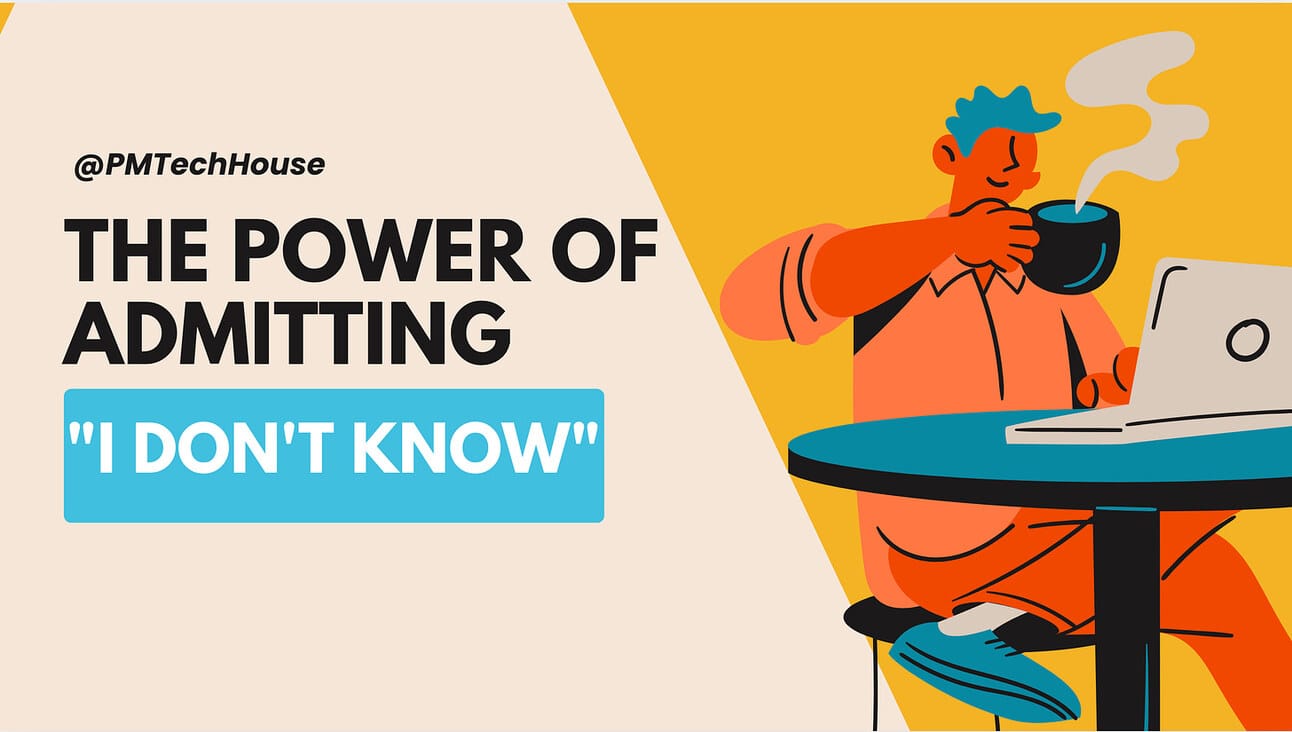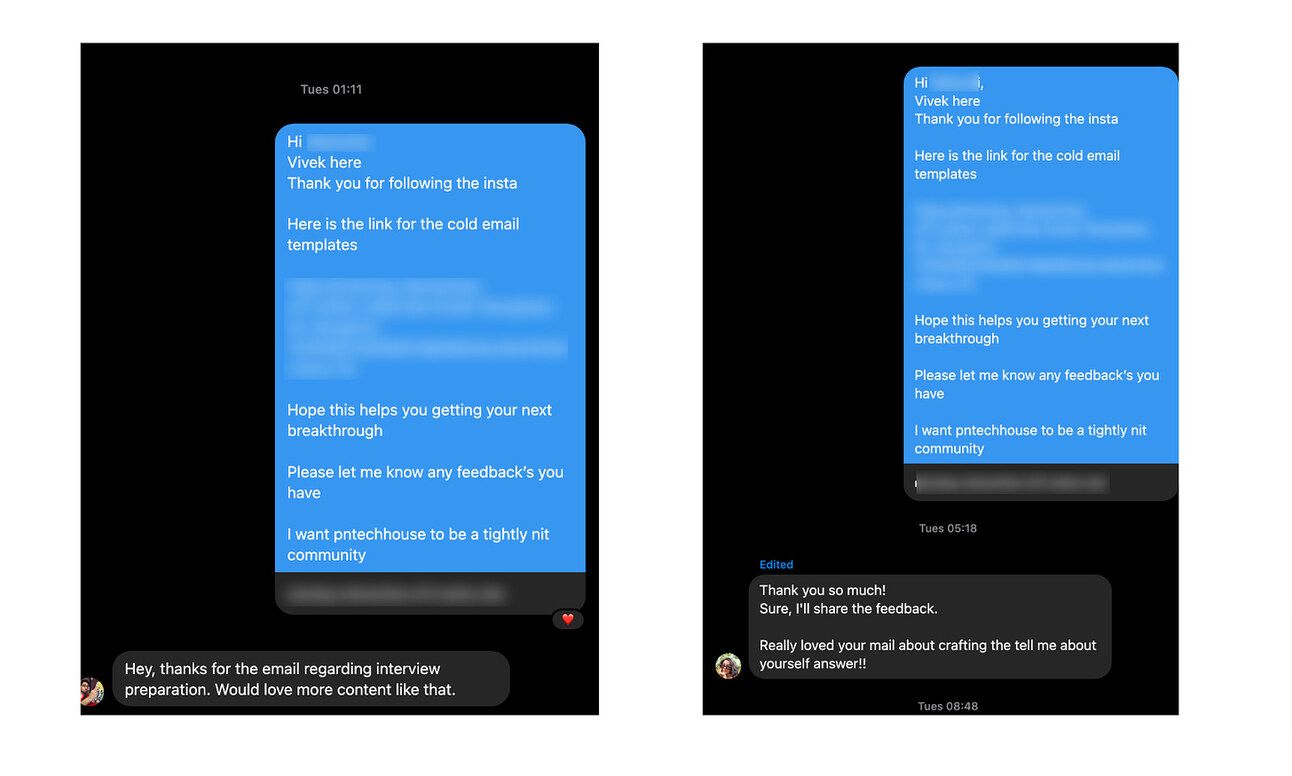- PM Tech House 🏠
- Posts
- The Power of Admitting "I Don't Know"
The Power of Admitting "I Don't Know"
Why Knowing When to Ask for Help Matters
Many people feel pressured to always have the right answers. This pressure can lead to overconfidence, where individuals provide answers even when they are unsure. However, admitting "I don't know" can be a powerful move that leads to personal growth, stronger relationships, and better outcomes in your work.

Ive shared the cold email templates with those following the account below. If you haven't already, do it now. I'm offering free cold email templates for securing internships, jobs, and networking opportunities.
Cold emailing has completely transformed my professional journey, and I’m hoping it can do the same for you. Follow the account below to get your copy today

The Problem with Overconfidence
When you’re new in your tech role, it’s easy to want to impress your colleagues and bosses by appearing knowledgeable. You might think that giving quick answers makes you look smart. However, this can backfire. For example, I once assured a client that our project would meet their specifications without double-checking the details. On the day of the event, the graphics were pixelated and looked unprofessional. This mistake cost our company money and damaged our reputation.
Overconfidence can blind you to important details. When you rush to provide answers without verifying them, you risk making mistakes that could have been avoided. It’s crucial to recognize that it’s okay not to have all the answers.
The Benefits of Admitting Uncertainty
Encourages Collaboration: When you admit you don’t know something, it opens the door for others to share their knowledge and insights. This creates a collaborative environment where everyone feels comfortable contributing.
Builds Trust: Being honest about your limitations can help build trust with your colleagues and clients. They will appreciate your honesty and see you as someone who values accuracy over simply appearing knowledgeable.
Promotes Personal Growth: Acknowledging what you don’t know allows you to learn from others and grow in your role. It encourages a mindset of continuous learning, which is essential in the ever-changing tech landscape.
How to Embrace This Mindset
Instead of feeling pressured to have all the answers, try these strategies:
Pause Before Responding: When asked a question, take a moment to consider whether you truly know the answer or if you're guessing.
Use Phrases That Buy Time: If you're unsure, say things like:These phrases show that you are committed to finding accurate information rather than rushing to provide an answer.
"Let me check on that."
"I’ll get back to you with more information."
"I’m not sure about that; let’s find out together."
Encourage Team Input: Foster an environment where team members feel comfortable asking questions and sharing ideas. This can lead to better solutions and more innovative thinking.
Learning from Experience
Throughout my career, I learned that admitting "I don't know" is not a weakness but a strength. Initially, I felt uncomfortable when I didn’t have an answer and worried about how others would perceive me. However, over time, I realized that being honest about my limitations helped me grow and improve my reputation among colleagues.
For instance, during meetings, I started telling clients when I didn’t have all the answers instead of making false promises. This approach not only relieved pressure from me but also encouraged my team to take initiative in problem-solving.
The Shift in Perspective
As I gained more experience, I understood that true confidence comes from recognizing one’s limits. It’s important to focus on finding the best solutions rather than needing to be right all the time. Clients often appreciate working with someone who asks the right questions rather than someone who claims to have all the answers.
In personal relationships, admitting uncertainty can also strengthen bonds. Saying "I don't know" can reduce tension and foster trust between friends and family.
Conclusion
In conclusion, admitting "I don't know" is a powerful tool for anyone in early tech roles. It encourages collaboration, builds trust, and promotes personal growth. Instead of rushing to fill silence with answers, take a moment to reflect and be honest about what you know and what you don’t.
Remember: true intelligence isn’t about having all the answers; it’s about being open to learning from others and recognizing when you need help. So next time someone asks you a question, and you're unsure of the answer, take a deep breath and say, “I don’t know, but let’s find out together.” This simple act can lead to greater success in your career and deeper connections with those around you.
Like & Share
Thank you for taking the time to read this article! If you found it valuable, I would greatly appreciate it if you could like, share, and subscribe (if you haven't already)